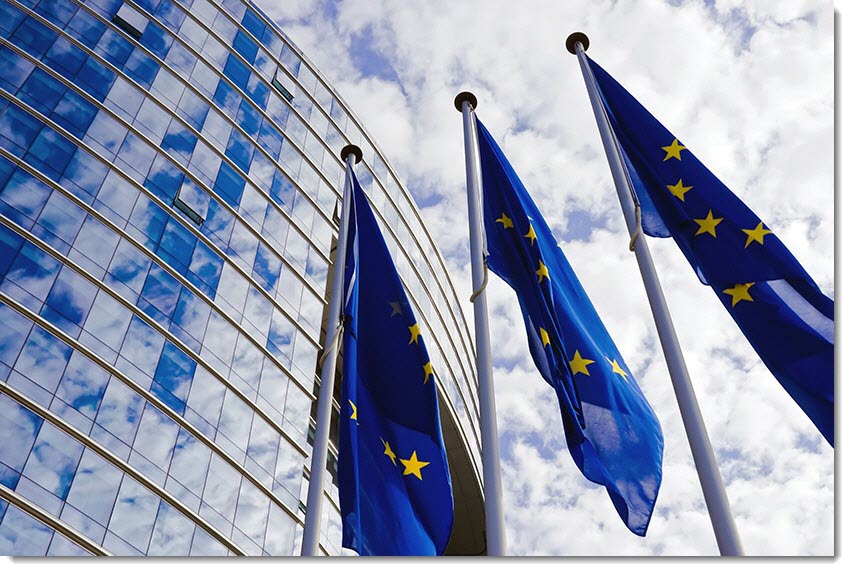
27/11/2023
EU Insight, 24 November 2023
Brussels, 24 November 2023
PARLIAMENT AGREES ON RULES ON WASTEFUL PACKAGING AND CITIZEN’S RIGHT TO REPAIR
The European Parliament adopted its negotiating mandate on two key initiatives within the European Green Deal. First, a position aiming to revamp rules on packaging to limit waste and foster recycling. Notably, these include a ban on the use of “forever chemicals” in packaging, as well as measures to encourage the reuse of packaging for end consumers. Secondly, the Parliament agreed to strengthen citizen’s right to repair consumer goods. The new rules would grant independent repairers, refurbishes, and end-user access to all spare parts and repair information, to encourage defective products such as consumer electronics, being repaired instead of disposed.
POSITION ON NET ZERO INDUSTRY ACT ADOPTED BY PARLIAMENT
The Parliament also adopted a position on the Net-Zero Industry Act. As a response to the US Inflation Reduction Act, the initiative aims to ensure that the EU’s manufacturing capabilities for net-zero technologies remain competitive at international level. Thus, the act aims to encourage subsidies towards, and sets manufacturing targets for a list of technologies deemed as “strategic”. Notably, compared to the Commission’s proposal the Parliament’s position expands said list, and expands the EU’s manufacturing targets to cover at least 25% of global demand for a given technology, and not just domestic demand. Parliament’s adoption puts pressure on the Council to finalise its position and pave the way for negotiations.
KEY EU MEMBER STATES PUT THE AI ACT IN JEOPARDY
France, Italy, and Germany have pushed back against the regulation of foundation models and general-purpose AI, which is the technology on which Chat-GPT, and other large language models are built on. Despite having endorsed a common Council position on the treatment of such models under the AI Act in June, the three countries are now aiming to pause regulation. Instead, they are calling for self-regulation and the introduction of codes-of conduct. With negotiations on the AI Act in advanced stages, and little time before the end of the legislature, this move may delay the implementation of the Act, and thus puts the EU’s pioneering role in the regulation of AI in jeopardy.
PARLIAMENT PROPOSES OBERHAUL TO EU TREATIES
The European Parliament endorsed a report with proposals to amend the EU Treaties. The report, which enjoyed relative cross-party support, aims to amend the EU Treaties to rebalance the power dynamics between the three legislative institutions. Notably, the suggested measures include removing Member States’ veto powers in Council, increasing transparency and accountability for Council and Commission, and giving the Parliament the right to initiate legislation. While the adopted report holds no legal weight, given that any reform to the Treaties primarily lies in the hands of Member States, the report highlights the Parliament’s desire to gain a strengthened role in the legislative process and feeds into the ever-present debate to amend the functioning of the EU.
COMMISSION EXTENDS EMERGENCY STATE AID FRAMEWORK
The European Commission extended a limited number of provisions under the State aid Temporary Crisis and Transition Framework. The temporary framework was initially implemented in response to the COVID pandemic, and later expanded in light of the energy crisis. As such, the framework provides flexibility for Member States to provide state aid to sectors in the economy hit particularly hard by increasing energy prices. While the framework was set to expire at the end of 2023, considering the ongoing conflict in the Middle East and its potential ramifications on energy prices, the Commission decided to extend the provisions by a further six months.
COMING UP NEXT WEEK
- 27 November: Foreign Affairs Council. On the agenda: WTO 13th Ministerial Conference, Trade agreement with Chile, EU-US trade relations, enforcement of EU trade policy.
- 27-29 November: Employment, Social Policy, Health and Consumer Affairs Council. On the agenda: 2024 European Semester, European disability card, EU Elections.
- 29 November: College of Commissioners. On the agenda: Passenger mobility package, anti-smuggling package, action plan to facilitate grids roll-out.
- 29 November: European Central Bank (ECB) Governing Council. On the agenda: non-monetary policy meeting in Frankfurt.
- 29 November: The Organisation for Economic Cooperation and Development (OECD) 16th Global Forum plenary meeting. On the agenda: Tax Transparency Framework.
- 30 November – 10 December: Conference of the Parties (COP28). On the agenda: Twin Transitions, Sustainable Finance & Development, Energy, Accountability, Technology.
- 30 November: General Affairs Council. On the agenda: Future of cohesion policy, closure of the 2014-202 programming period, cohesion policy and European Strategic autonomy.
Karl Isaksson, Managing Partner Brussels, Kreab
_________________________________________________________
Kreab • Tel: +32 2 737 6900 • karl.isaksson@kreab.com • www.kreab.com/brussels • Twitter: @KreabEU.
